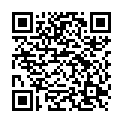|
|
|
| Module code: PIB-WA |
|
|
1V+1U (2 hours per week) |
|
2 |
| Semester: 4 |
| Mandatory course: yes |
Language of instruction:
German |
Assessment:
[still undocumented]
|
PIB-WA (P221-0046) Applied Informatics, Bachelor, ASPO 01.10.2022
, semester 4, mandatory course
PIB-WA (P221-0046) Applied Informatics, Bachelor, SO 01.10.2026
, semester 4, mandatory course
PRI-WA Production Informatics, Bachelor, SO 01.10.2026
, semester 4, mandatory course
|
30 class hours (= 22.5 clock hours) over a 15-week period.
The total student study time is 60 hours (equivalent to 2 ECTS credits).
There are therefore 37.5 hours available for class preparation and follow-up work and exam preparation.
|
Recommended prerequisites (modules):
PIB-INF1 Informatics 1
PIB-INF2 Informatics 2
[updated 20.03.2025]
|
Recommended as prerequisite for:
|
Module coordinator:
Prof. Dr. Peter Birkner |
Lecturer:
Prof. Dr. Klaus Berberich
Prof. Dr. Peter Birkner
[updated 20.03.2025]
|
Learning outcomes:
After successfully completing this module, students will be able to describe and explain how scientific work works, especially in computer science. In doing so, they will be able to use their knowledge to carry out searches and document arguments in writing as well as with the help of quotations. In addition, students will be able to use the most common scientific documentation tools.
[updated 24.02.2018]
|
Module content:
Methodical and technical basics will first be taught and then intensified through practical exercises. Exams will be conducted parallel within the framework of the exercises, which students will work on independently.
1. Principles of science
2. Forms of science in Informatics
3. Scientific activity in Informatics
4. Research: goals, methodology, sources
5. Arguing and quoting
6. Tools for scientific documentation
7. Articulating scientific results
8. Selected special topics
[updated 24.02.2018]
|
Teaching methods/Media:
Transparencies, projector, board, discussions, theoretical and practical exercises
[updated 24.02.2018]
|
Recommended or required reading:
Martin Kornmeier: Wissenschaftlich Schreiben leicht gemacht, utb, 2013.
Marcus Deininger, Horst Lichter, Jochen Ludewig, Kurt Schneider: Studien-Arbeiten: Ein Leitfaden zur Vorbereitung, Durchführung und Betreuung von Studien-, Diplom- und Doktorarbeiten am Beispiel Informatik. Teubner, 5. Auflage 2005.
Justin Zobel: Writing for Computer Science. Springer, 3. Auflage 2014.
Barbara Minto: Das Prinzip der Pyramide. Pearson Studium, 2005.
Gene Zelazny: Say it with Presentations. McGraw-Hill, 2006.
Tobias Oetiker: The Not So Short Introduction to LaTeX
[updated 24.02.2018]
|
Module offered in:
SS 2025,
SS 2024,
SS 2023,
SS 2022,
SS 2021,
...
|


